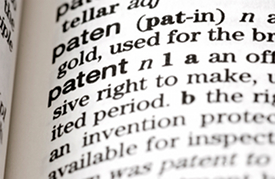 Last week, my colleague Ilana Bergstrom and I attended a session called “Law School for Digital Journalists” at a conference hosted by the Online News Association. Although both of us went to law school, the session seemed like an opportunity to learn about the unique issues that online journalists face. Indeed, the session promised “classes [on] the full range of legal issues that impact the professional lives of digital journalists: copyright, newsroom law, international media law, access and FOIA, and the legal issues involved in launching and running a digital news operation.” The instructors were experts on digital media law, presented in conjunction with the UNC Center for Media Law & Policy, the Stanford Law School Center for Internet & Society and the UC Berkeley Graduate School of Journalism.
Last week, my colleague Ilana Bergstrom and I attended a session called “Law School for Digital Journalists” at a conference hosted by the Online News Association. Although both of us went to law school, the session seemed like an opportunity to learn about the unique issues that online journalists face. Indeed, the session promised “classes [on] the full range of legal issues that impact the professional lives of digital journalists: copyright, newsroom law, international media law, access and FOIA, and the legal issues involved in launching and running a digital news operation.” The instructors were experts on digital media law, presented in conjunction with the UNC Center for Media Law & Policy, the Stanford Law School Center for Internet & Society and the UC Berkeley Graduate School of Journalism.
Both of us found the speakers dynamic, the discussions interesting, and the material familiar yet refreshing. From First Amendment rights to U.K. copyright law to journalism/news business law, the topics covered reiterated the need for an ongoing dialogue between professionals in different fields. As a contributor to Justia’s Verdict and Onward Blog and with aspirations of writing more, I found the level of engagement to be stimulating, combining two of my own passions: writing and the law. Ilana writes for Justia’s Onward Blog and expressed similar satisfaction with the session’s treatment of the union of law and journalism.
As a side note, but of no less importance, we both thoroughly enjoyed the lunch presentation by Pulitzer Prize-winning political animator Mark Fiore. His presentation combined humor, politics, and a no-holds-barred commentary on some oft-overlooked aspects of our society.
 Defense attorneys for Facebook and founder Mark Zuckerberg won’t oppose attorney Dean Boland’s motion to withdraw from representing plaintiff Paul Ceglia, as long as he can’t have his cake and eat it too, according to a new federal court filing (read it below).
Defense attorneys for Facebook and founder Mark Zuckerberg won’t oppose attorney Dean Boland’s motion to withdraw from representing plaintiff Paul Ceglia, as long as he can’t have his cake and eat it too, according to a new federal court filing (read it below).
 After three years, language-learning software company
After three years, language-learning software company  Yesterday Facebook and Mark Zuckerberg scored a huge win against Paul Ceglia, the plaintiff claiming 50% ownership of the social media company, but whose allegations the defendants have consistently maintained are based upon a fraudulent work for hire document.
Yesterday Facebook and Mark Zuckerberg scored a huge win against Paul Ceglia, the plaintiff claiming 50% ownership of the social media company, but whose allegations the defendants have consistently maintained are based upon a fraudulent work for hire document. Evolutionary Intelligence, LLC sued
Evolutionary Intelligence, LLC sued  Why would a defendant litigate over four and a half years, finish conducting discovery, tell a court that it’s ready for trial, and then – only then – ask a plaintiff to admit that he posted photographs on Facebook and other social media sites?
Why would a defendant litigate over four and a half years, finish conducting discovery, tell a court that it’s ready for trial, and then – only then – ask a plaintiff to admit that he posted photographs on Facebook and other social media sites? Here is a summary of legal developments in five federal and state court cases last week that involved technology companies, or alleged activities by their users.
Here is a summary of legal developments in five federal and state court cases last week that involved technology companies, or alleged activities by their users. A former Chairman of the the Advisory Board of a professional mutual fund pleaded guilty today in federal court to a series of charges in a $13 million conspiracy to defraud in investors by falsely claiming that Praetorian Global Fund Ltd. privately owned pre-IPO Facebook and Groupon stock before each of the social media start-ups went public. In reality, the British Virgin Islands-based fund did not.
A former Chairman of the the Advisory Board of a professional mutual fund pleaded guilty today in federal court to a series of charges in a $13 million conspiracy to defraud in investors by falsely claiming that Praetorian Global Fund Ltd. privately owned pre-IPO Facebook and Groupon stock before each of the social media start-ups went public. In reality, the British Virgin Islands-based fund did not. Last week, my colleague Ilana Bergstrom and I attended a session called
Last week, my colleague Ilana Bergstrom and I attended a session called 
 Photographer
Photographer